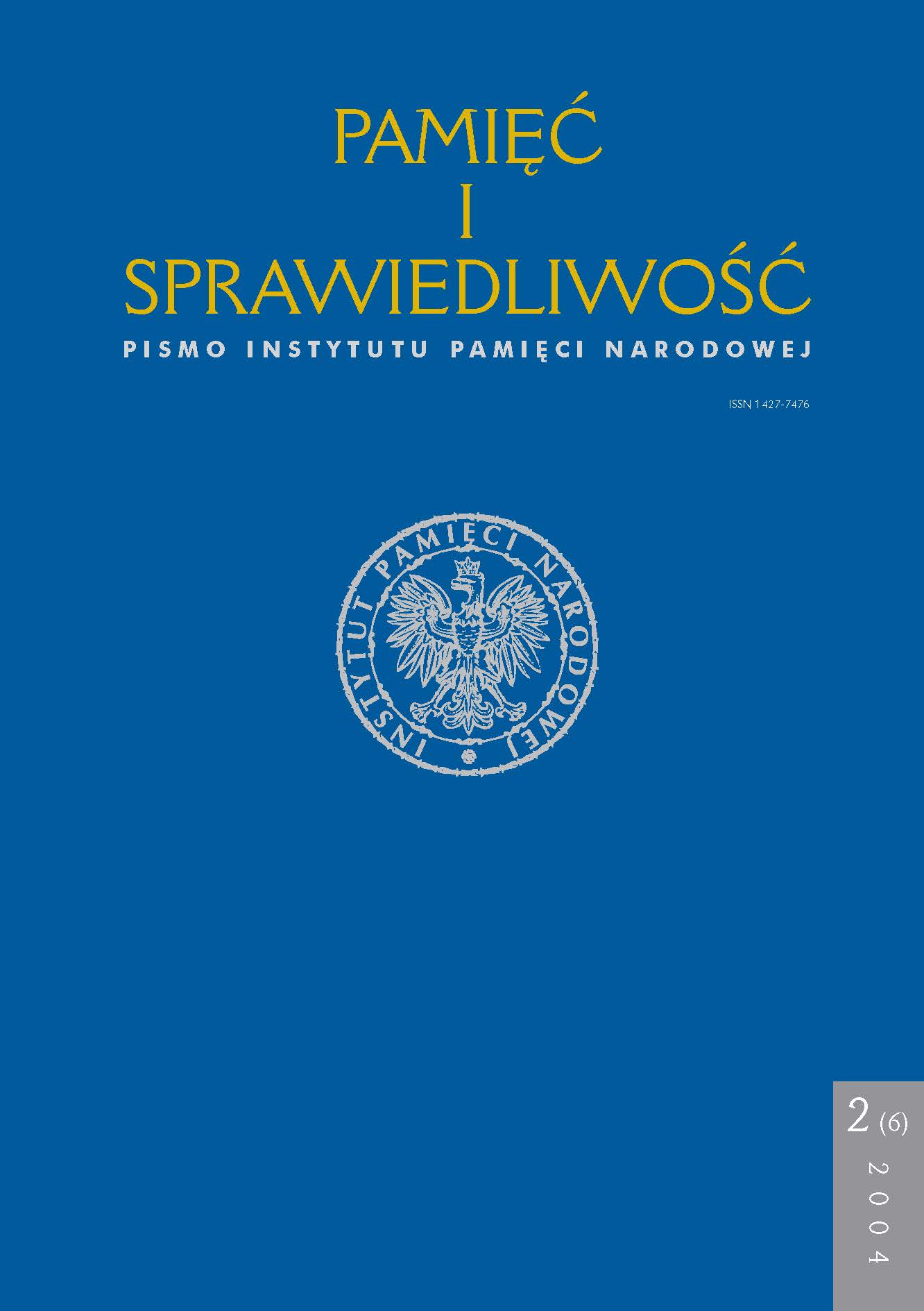Mordercy Żydów przed nazistowskim Sądem Specjalnym
Pamięć i Sprawiedliwość, Tom 6 Nr 2 (2004), strony: 233-246
Data publikacji: 2004-12-30
Abstrakt
A typical for a Nazi country racist ideology aimed at the Jews created the atmosphere of hatred against the persecuted Jewish community. It led to growing impunity of the society, both of Reichdeutsches and some Poles. Sometimes it resulted in committing murders on Jews.
Court cases of the Polish Lipinski family and a reichsdeutsch Artur Eckert, accused of secret murder of Jews, which were heard in 1944 at Nazi special courts in Łódź (Litzmannstadt)
and in Berlin give a new view on Nazi „justice”. Passing a death sentence for „Aryans” for murdering Jews („underpeople” according to the official interpretation of national socialism) contradicted both the official ideology and the policy of extermination of Jews. The cases described prove that using capital punishment for exceptionally brutal murders of Jews out of mean motives was a rule for courts no matter what the murderers’ origin was. It was important for the Nazi authorities to distinguish between a „state” extermination and individual murders out of robbery motives, that is why murders of Jews
committed by „Aryans” were prosecuted by Criminal Code of Reich and anybody who killed them out of mean motives, that is without the institutional allowance, was treated as a murderer.
Such a use of law, contradictory to the official ideology of the Nazi state, was applied only in cases when Jews were victims of individual murders, but even in those cases the reason for it was not their civil rights, but the need to keep order in the state. Jewish victims were only a pretext to prosecute lawless individuals acting out of institutional or state control, for whom there was no place within a totalitarian state. When proclaiming the racist ideology, Nazi authorities were on one hand creating favorable conditions for this kind of crimes, and on the other hand fighting individual criminal initiatives which could lead to anarchy.
Inne teksty tego samego autora
- Dorota Siepracka, Janusz Wróbel, Litzmannstadt – nazistowski eksperyment narodowościowy na ziemiach polskich , Pamięć i Sprawiedliwość: Tom 12 Nr 1 (2008)
 Język Polski
Język Polski
 English
English
 Deutsch
Deutsch
 Français (France)
Français (France)
 Italiano
Italiano
 Русский
Русский


 PDF
PDF
